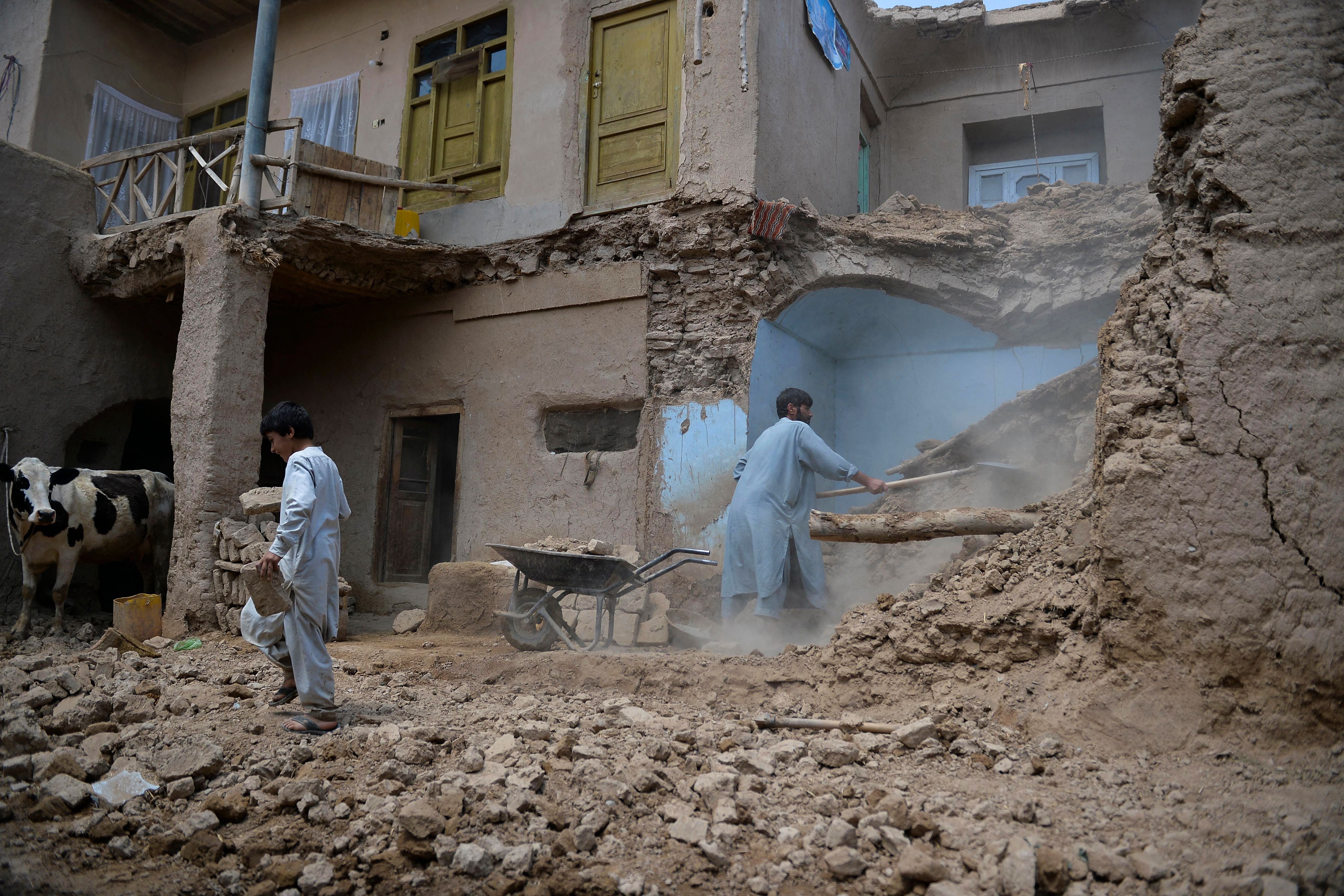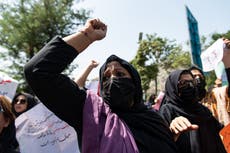At least 20 dead in Afghanistan as flash floods wreak havoc in crisis-ridden country
Hundreds of houses damaged as Afghans suffer yet another crisis after droughts and massive earthquake

Deadly flash floods that hit Afghanistan in the last 48 hours have left dozens of people dead with hundreds of houses and acres of crop fields damaged.
The sudden deluge of flooding comes as extreme rainfall was already wreaking havoc in Afghanistan, destroying mud houses and killing dozens over the last few weeks.
This is also one in a series of natural disasters to hit the vulnerable nation which is going through a humanitarian crisis. A drought and a devastating earthquake earlier this year had left over 1,000 people dead.
On Monday, the country’s disaster management agency confirmed at least 20 people were dead in the recent floods over the weekend in several areas.
“Twenty are dead, 35 have been injured due to flooding in Logar province,” said Mohammad Nassim Haqqani, the spokesman for Afghanistan’s disaster management authority.
Aid agencies working on the ground, however, believe the death toll could be much higher.
The Afghan Red Crescent, which is the Afghanistan affiliate for the Red Cross, said on Twitter that its five-day survey showed the series of flash floods heavily impacted villages like Bundestan, Ikhdar and Khishko Dara in the central Parwan Province near Kabul.
Hundreds of houses have been damaged while dozens have been completely destroyed. A large part of Afghanistan’s population suffering from poverty due to years of conflict lives in weak mud houses made with soil and stones that are prone to maximum damage in case of any disasters.
Heavy damage to the country’s infrastructural projects has also left many areas isolated, as bridges, dams, windmills and roads take a hit during the flooding season.
The Taliban government, which took over the country last August, has struggled to cope with back-to-back disasters and has called for assistance.
“We ask the international community, especially Islamic countries and humanitarian organisations, to urgently help the victims,” Taliban government spokesman Zabihullah Mujahid said in a video message posted on social media.
Global humanitarian agencies have provided assistance for months, but have warned that they needed more access and funding to avoid a humanitarian disaster with thousands left homeless and no access to shelter or clean drinking water.
The country continues to suffer from heavy rains, increasing the likelihood of more flash floods. The climate crisis has also made extreme weather events like flash floods far more likely in south Asia, with many regions facing intense periods of droughts and erratic rainfall patterns leading to deadlier floods.
Neighbouring Pakistan’s Balochistan province also went through one of its worst periods of flooding in July, with villagers describing it as unprecedented. Parts of India, Bangladesh and China have also reported several flood-related disasters.
Islamic Relief UK, one of the aid agencies working on the ground to provide relief to Afghans, says with the country’s extremely limited financial ability, the burden of recurring extreme weather events is getting beyond its “capacity to cope”.
"We are now seeing extreme weather hit areas of Afghanistan and wider South Asia including Bangladesh, Pakistan and India. The impacts have been devastating and it is imperative to acknowledge that the climate crisis is threatening the lives of the least responsible,” Shazia Arshad, head of communications for Islamic Relief UK tells The Independent.
"The international community has a duty to not turn its back on the people of Afghanistan. With an exacerbating economic crisis and sanctioned access to funds, the climate emergency will occur as a recurring challenge beyond the country’s capacity to cope."
The Intergovernmental Panel on Climate Change (IPCC) has predicted south Asia is going to be hit with intense heatwaves, floods and droughts as the air becomes hotter, with the most vulnerable communities disproportionately impacted.
So far, 2022 has been deadly in terms of natural disasters with intense heatwaves in not just south Asia, but also East Asia and parts of Europe and flooding wreaking havoc in many regions.
Additional reporting by agencies
Join our commenting forum
Join thought-provoking conversations, follow other Independent readers and see their replies
Comments






Bookmark popover
Removed from bookmarks